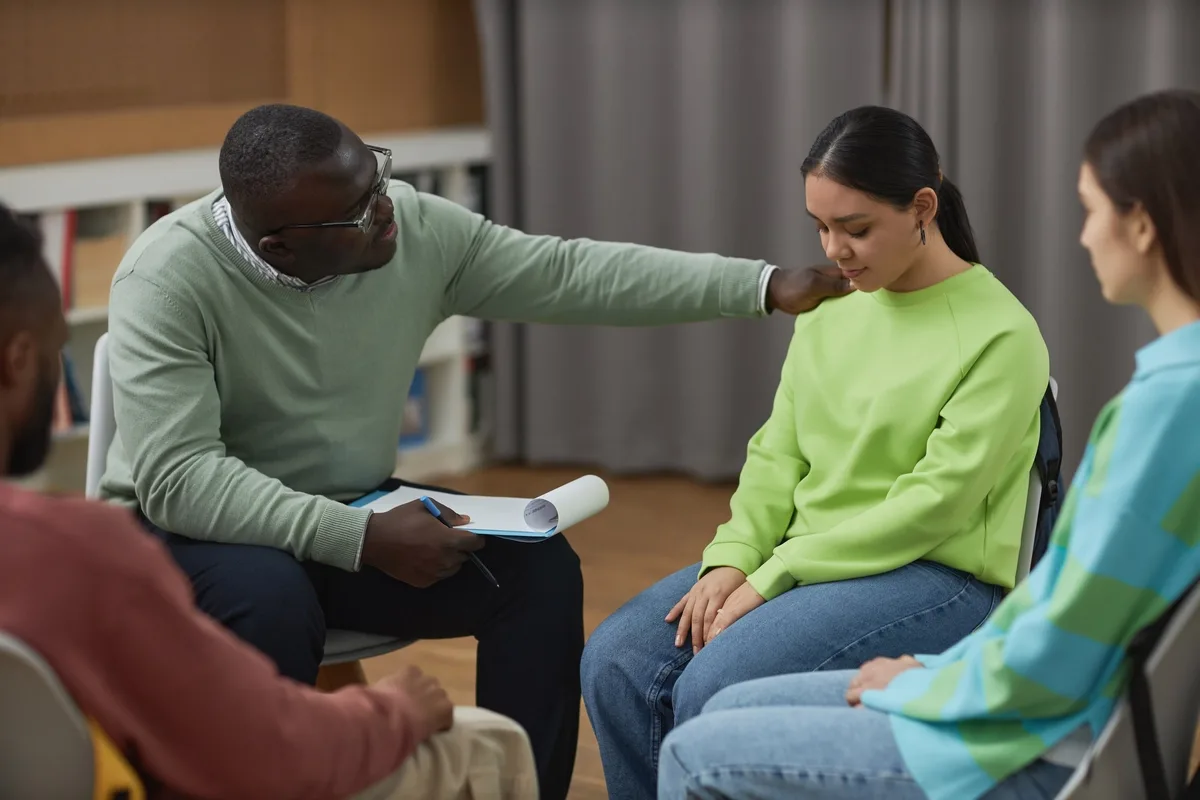24/7 Helpline:
(866) 899-221924/7 Helpline:
(866) 899-2219
Learn more about PTSD Treatment centers in Maceo
PTSD Treatment in Other Cities

Other Insurance Options

CareSource

Carleon

WellPoint

Cigna

PHCS Network

GEHA

Sutter

Oxford

Ceridian

Medical Mutual of Ohio

Regence

Access to Recovery (ATR) Voucher

Optima

Covered California

Health Net

MVP Healthcare

Humana

Aetna

EmblemHealth

American Behavioral


























